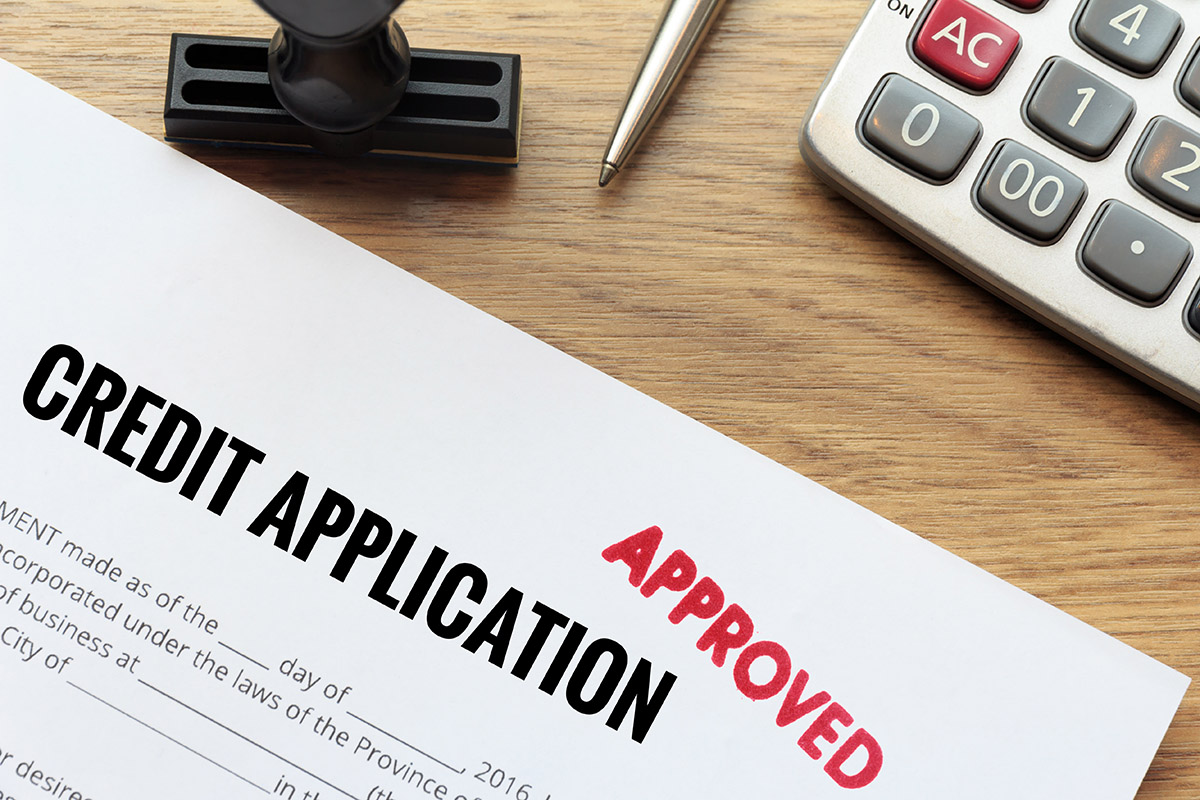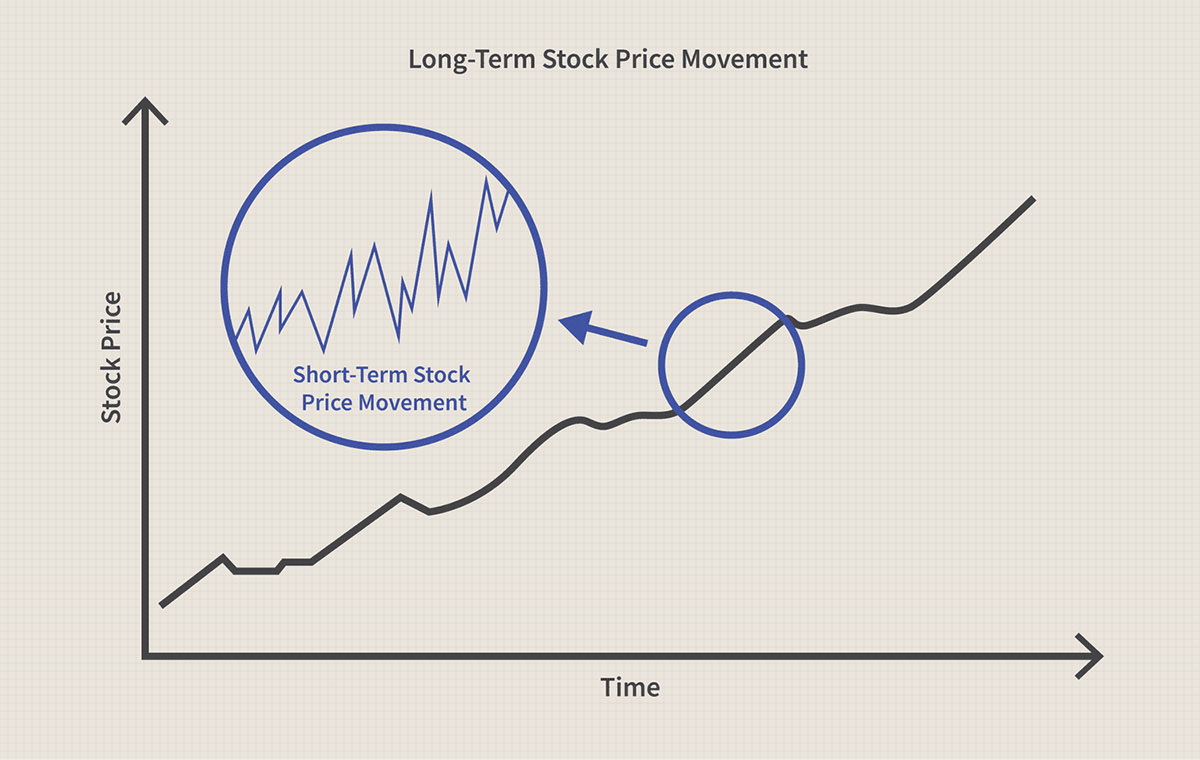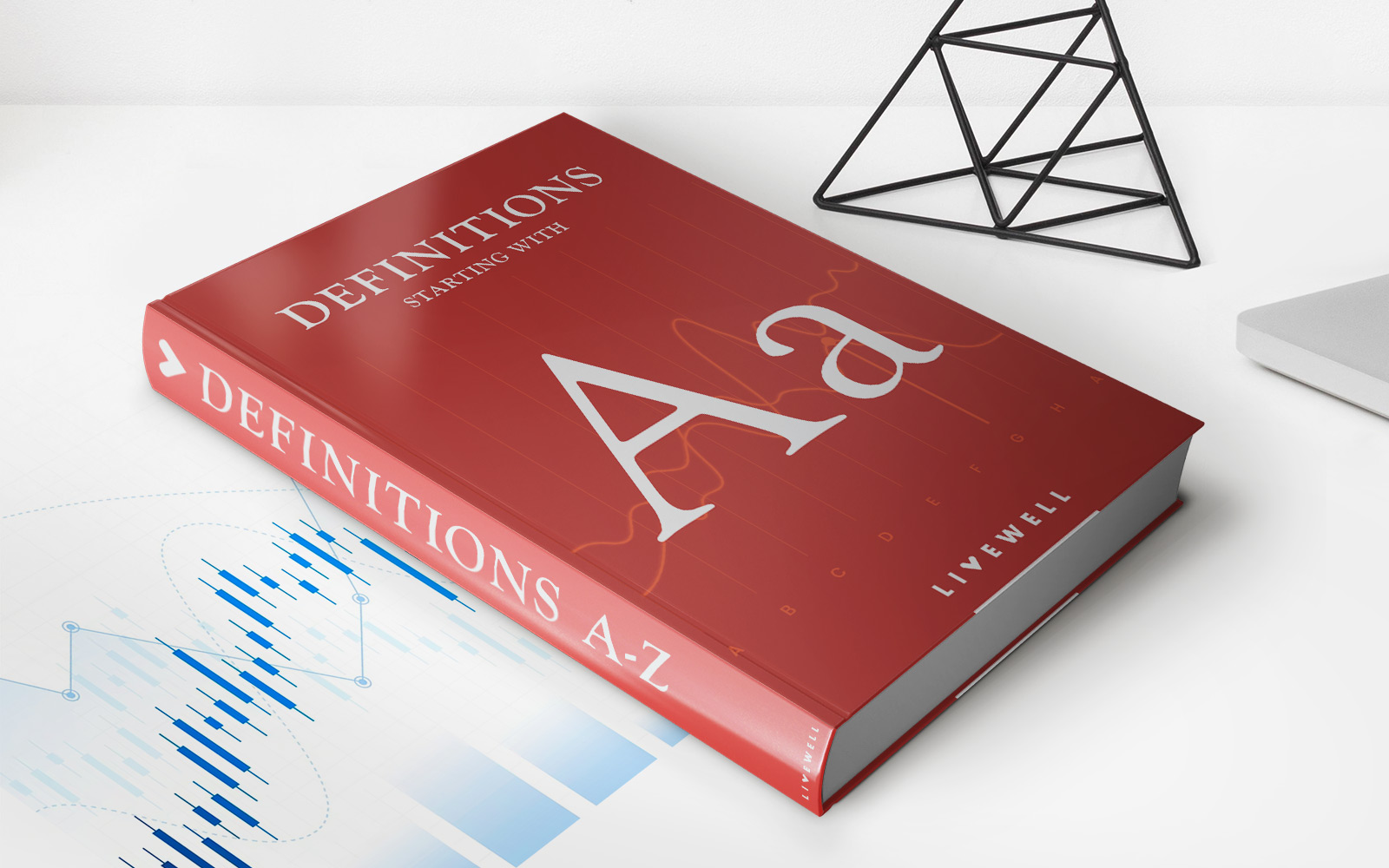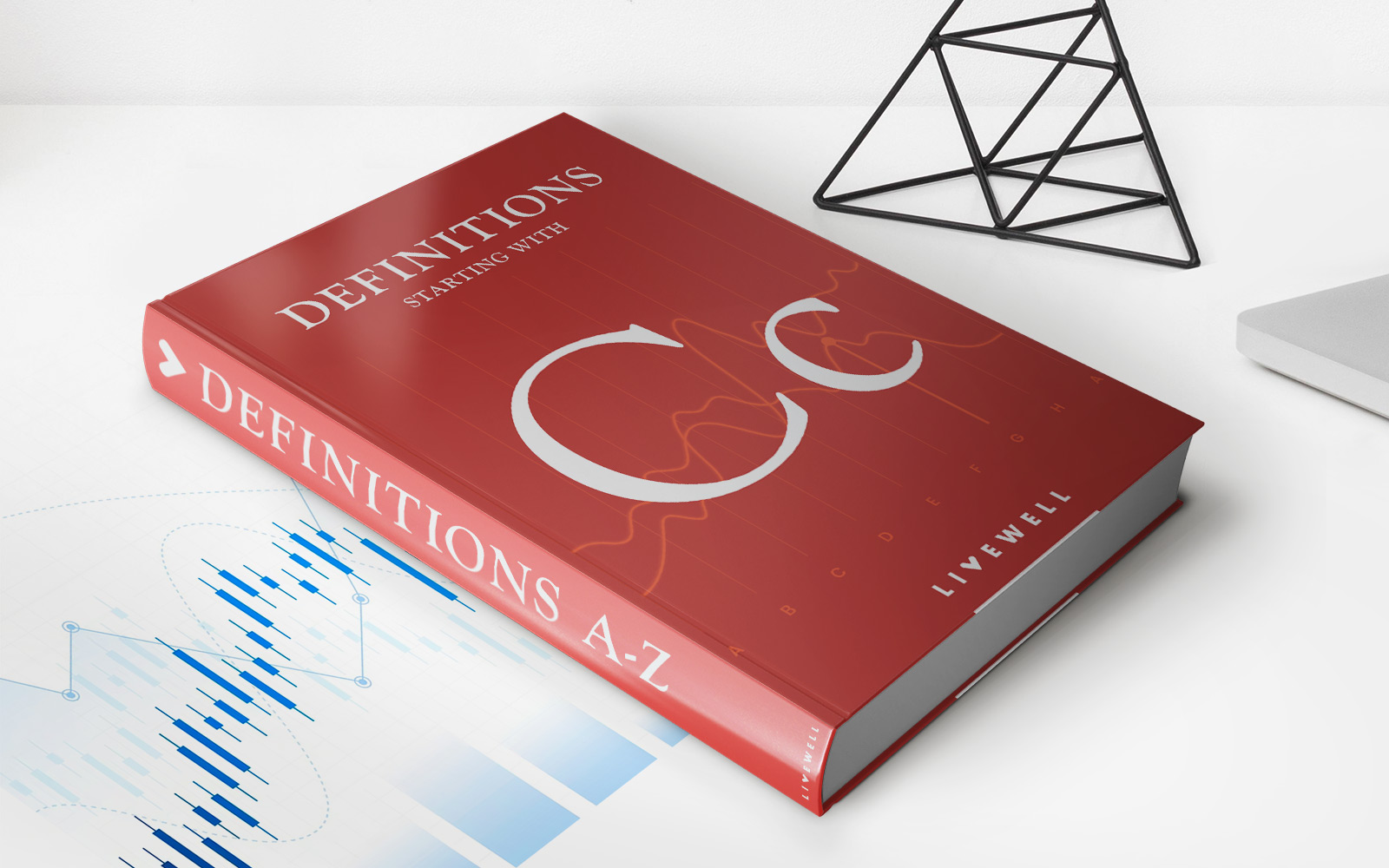

Finance
When Should You Get A New Credit Card
Modified: March 6, 2024
Looking to optimize your personal finances? Find out when it's the right time to get a new credit card and maximize your financial opportunities.
(Many of the links in this article redirect to a specific reviewed product. Your purchase of these products through affiliate links helps to generate commission for LiveWell, at no extra cost. Learn more)
Table of Contents
- Introduction
- Factors to Consider Before Getting a New Credit Card
- Advantages of Getting a New Credit Card
- Disadvantages of Getting a New Credit Card
- Signs that Indicate the Need for a New Credit Card
- Situations When Getting a New Credit Card is Not Recommended
- How to Choose the Right Credit Card for Your Needs
- Conclusion
Introduction
Getting a new credit card can be an exciting prospect, offering the opportunity for increased purchasing power and potential rewards. However, it is important to carefully consider various factors before diving into the world of new credit cards.
With so many options to choose from, it can be overwhelming to decide whether or not to get a new credit card. This article aims to guide you through the decision-making process by highlighting the advantages and disadvantages of obtaining a new credit card, as well as indicating when it may be a good or bad idea to apply for one.
It is essential to approach the decision to get a new credit card with a clear understanding of your financial situation and goals. By considering factors such as your credit score, spending habits, and financial needs, you can make an informed decision that aligns with your individual circumstances.
In the following sections, we will explore the various factors to consider before getting a new credit card, discuss the advantages and disadvantages, identify signs that indicate the need for a new credit card, highlight situations when getting a new credit card is not recommended, and provide tips on choosing the right credit card for your needs.
Ultimately, the decision to get a new credit card should be based on careful consideration and a thorough evaluation of your financial situation. By understanding the implications, benefits, and potential drawbacks, you can make an informed decision that supports your long-term financial well-being.
Factors to Consider Before Getting a New Credit Card
Before diving into the world of new credit cards, it is crucial to consider several factors to ensure that the decision aligns with your financial goals and needs. Here are some key factors to take into account:
- Credit Score: Your credit score plays a significant role in determining your eligibility for a new credit card. Lenders usually consider higher credit scores as a sign of responsible financial behavior. If your credit score is low, it may be wise to work on improving it before applying for a new card.
- Annual Fees: Many credit cards come with annual fees, so it’s important to consider whether the benefits of the card outweigh the cost. Some cards have higher fees but offer valuable rewards, while others may have no annual fees but come with fewer perks.
- Interest Rates: Understanding the interest rates associated with a new credit card is crucial. High interest rates can quickly accumulate debt if you carry a balance. Look for cards with low introductory rates or consider transferring existing balances to a card with a lower interest rate.
- Rewards and Benefits: Different credit cards offer various rewards programs and benefits such as cashback, travel rewards, or discounts on specific purchases. Consider which rewards align with your spending habits and lifestyle to ensure that the card offers meaningful benefits for you.
- Spending Habits: Analyze your spending patterns and lifestyle to determine which credit card features are most important to you. For example, if you frequently dine out or travel, a card with rewards for dining or travel-related expenses could be a great fit.
- Credit Limit and Utilization: Consider the credit limit offered by the new credit card and how it aligns with your financial needs. Additionally, be mindful of your credit utilization ratio, which is the percentage of available credit you are currently using. Keeping your credit utilization low can positively impact your credit score.
- Fees and Penalties: Take the time to read the fine print and understand any additional fees or penalties associated with the credit card. Common fees include late payment fees, balance transfer fees, and cash advance fees. Be aware of these charges to avoid unexpected surprises.
By carefully considering these factors, you can make an informed decision when it comes to getting a new credit card. It is essential to choose a card that fits your financial circumstances and aligns with your goals and spending habits.
Advantages of Getting a New Credit Card
Getting a new credit card can offer several advantages that can positively impact your finances and provide convenience. Here are some of the key advantages to consider:
- Improve Credit Score: When used responsibly, a new credit card can help improve your credit score. By making timely payments and maintaining a low credit utilization ratio, you demonstrate financial responsibility, which can boost your creditworthiness in the long run.
- Build Credit History: If you are new to credit or have a limited credit history, a new credit card can be a valuable tool to establish and build your credit history. Regularly using and paying off the card demonstrates financial responsibility, which is essential for future loan applications.
- Rewards and Perks: Many credit cards offer lucrative rewards programs and perks. These can include cashback on purchases, travel rewards, airline miles, or discounts at partner retailers. Taking advantage of these rewards can help you save money or enjoy exclusive benefits.
- Emergency Fund: Having an available credit limit on a new credit card can act as an emergency fund. If an unexpected expense arises, such as a medical bill or car repair, you can use the card as a temporary solution while you arrange for alternative funding.
- Convenience and Flexibility: Credit cards provide a convenient and widely accepted method of payment. With a new credit card, you can make online purchases, book travel accommodations, and enjoy the flexibility of paying off your balance over time if needed.
- Balance Transfer Opportunities: If you have existing credit card debt on a card with a high-interest rate, getting a new credit card with a low or 0% introductory interest rate on balance transfers can potentially save you money. Transferring your balance to the new card can lower your interest payments and help you pay off debt faster.
- Financial Tracking and Budgeting: Many credit cards offer detailed spending summaries, often breaking down purchases into categories. This can help you track your expenses, identify spending patterns, and create a budget that aligns with your financial goals.
It is important to note that these advantages only apply when credit cards are used responsibly. It is crucial to manage your credit card wisely by making timely payments, keeping balances low, and avoiding unnecessary debt.
By considering these advantages, you can determine whether getting a new credit card is a beneficial choice for your financial situation and goals.
Disadvantages of Getting a New Credit Card
While there are numerous advantages to obtaining a new credit card, it is essential to also consider the potential disadvantages. Understanding these drawbacks can help you make a well-informed decision. Here are some of the key disadvantages to consider:
- Temptation to Overspend: Having access to a new credit card may tempt you to spend beyond your means. It can be easy to fall into the trap of accumulating debt and struggling to keep up with payments if you are not disciplined with your spending habits.
- High Interest Rates: If you carry a balance on your credit card, the interest rates can be quite high, especially for cards targeting individuals with lower credit scores. Accumulating interest can quickly lead to debt and financial strain if not managed carefully.
- Annual Fees: Many credit cards come with annual fees, which can add up and eat into any potential rewards or benefits you may receive. If you do not utilize the features and rewards frequently or the fees outweigh the benefits, a credit card with no annual fee may be a better option.
- Impact on Credit Score: Opening a new credit card can have a temporary negative impact on your credit score. The new account will reduce the average age of your credit history, and the credit inquiry will result in a slight decrease in your score. However, with responsible credit card usage, these effects can be mitigated over time.
- Debt Accumulation: It can be easy to fall into a cycle of debt by using multiple credit cards simultaneously. Juggling multiple cards with different due dates and interest rates can lead to confusion and potential missed payments, which could negatively impact your credit score and financial stability.
- Potential for Fraud: With the increased use of credit cards, the risk of fraudulent activity also rises. Protecting your credit card information and monitoring your statements for any unauthorized transactions is crucial to avoid falling victim to fraud or identity theft.
- Affected Credit Utilization Ratio: Opening a new credit card will increase your total available credit, which can impact your credit utilization ratio. If you maintain low balances on your existing cards, the new card can lower your utilization ratio and positively impact your credit score. However, if you tend to carry high balances, the new card can increase your overall debt and hurt your credit score.
It is important to carefully consider these potential disadvantages and assess whether the benefits of getting a new credit card outweigh the drawbacks, given your financial situation and spending habits.
Remember, responsible credit card usage, such as making timely payments, keeping balances low, and avoiding unnecessary debt, can help mitigate many of these disadvantages.
Signs that Indicate the Need for a New Credit Card
While getting a new credit card is not always necessary, there are certain signs that could indicate it is the right time to consider obtaining one. Here are some signs that may suggest the need for a new credit card:
- Limited Rewards: If your current credit card does not offer attractive rewards or perks that align with your spending habits, it could be a sign that you may benefit from a new credit card. Look for cards that provide rewards or benefits that are more relevant to your lifestyle, such as cashback on specific categories or travel rewards.
- Outdated Features: If your current credit card lacks features and benefits that have become standard in the industry, it may be time for an upgrade. For example, if your card has a high-interest rate, no introductory offers, or limited customer support, a new card with more competitive features can be a worthwhile consideration.
- High Annual Fees: If you have a credit card with a high annual fee and are not utilizing the associated perks and benefits, it may be time to explore other options. Look for cards that offer similar benefits without the burden of a hefty annual fee, or even consider a card with no annual fee at all.
- Insufficient Credit Limit: If you find yourself consistently bumping up against your credit limit on your current card, it may be a sign that you need a higher limit. A new credit card with a higher credit limit can provide more financial flexibility and potentially improve your credit utilization ratio.
- Changing Financial Goals: If your financial goals and priorities have shifted, your current credit card may no longer align with your new objectives. For example, if you recently started traveling frequently and your current card does not offer travel rewards or benefits, it may be time to consider a new card that better suits your evolving needs.
- Poor Customer Service: If you have had consistently negative experiences with the customer service of your current credit card provider, it may be a sign that it’s time for a change. Look for credit cards from reputable institutions known for their excellent customer service and responsive support.
- Special Promotional Offers: Keep an eye out for special promotional offers from credit card issuers. These may include sign-up bonuses, introductory 0% APR on purchases or balance transfers, or limited-time rewards programs. Capitalizing on these offers can provide significant value in the short term.
Before applying for a new credit card, carefully weigh the signs and assess whether the benefits of a new card outweigh any potential drawbacks or costs. Ensure that your decision aligns with your current financial situation, goals, and spending habits.
Remember, responsible credit card usage is essential, regardless of whether you decide to get a new card or not.
Situations When Getting a New Credit Card is Not Recommended
While there are advantages to getting a new credit card, there are certain situations where obtaining one may not be recommended. It is important to consider the following scenarios before deciding to apply for a new credit card:
- Recent Credit Applications: If you have recently applied for other forms of credit, such as a mortgage or car loan, it may be wise to hold off on applying for a new credit card. Multiple credit inquiries within a short period can temporarily lower your credit score and raise concerns for potential lenders.
- High Debt Levels: If you are currently struggling with high levels of debt, it is generally not recommended to add another financial obligation. Focus on paying off existing debt and improving your financial situation before considering a new credit card.
- Unstable Employment: If you are experiencing instability or uncertainty with your employment, it may be best to avoid applying for a new credit card. A stable income is crucial in managing credit card payments and avoiding potential debt accumulation.
- Limited Financial Resources: If you do not have the financial means to handle additional credit card payments or you are living paycheck to paycheck, getting a new credit card may not be advisable. It is important to have a solid financial foundation and sufficient resources to manage credit responsibly.
- Impulsive Spending Habits: If you have a tendency to make impulsive purchases or have difficulty staying within budget, getting a new credit card may exacerbate these habits. It is crucial to have control and discipline when it comes to managing credit to avoid falling into excessive debt.
- Difficulty Managing Multiple Cards: If you already have multiple credit cards and struggle to keep track of payments, due dates, and balances, adding another card to the mix may only further complicate matters. Properly managing your existing cards should take priority before considering a new one.
- Limited Credit History: If you have a limited credit history or are new to credit, it may be challenging to get approved for a desirable credit card. In this case, it may be better to focus on building your credit history with your current credit card or consider alternative options such as a secured credit card.
It is crucial to assess your financial situation, goals, and personal circumstances before deciding to apply for a new credit card. Consider whether the timing is right and if a new card aligns with your current needs and abilities to manage credit responsibly.
Remember, responsible credit card usage and financial well-being should always be the top priority.
How to Choose the Right Credit Card for Your Needs
With numerous credit card options available, selecting the right one for your needs can be a daunting task. To make an informed decision, consider the following factors when choosing a credit card:
- Identify Your Goals and Priorities: Determine what you want to achieve with a credit card. Are you looking for travel rewards, cashback on specific categories, or a card to help build or improve your credit? Understanding your goals will help you narrow down the options.
- Evaluate Your Spending Habits: Analyze your spending patterns to determine which credit card features are most important to you. For example, if you frequently dine out, a card that offers dining rewards may be beneficial. If you travel often, a card with travel benefits and no foreign transaction fees might be the right choice.
- Consider Your Credit Score: Your credit score will impact the credit cards you are eligible for. If you have a good credit score, you may qualify for cards with better rewards and lower interest rates. If your credit score needs improvement, look for cards that are designed for individuals in this situation.
- Compare Interest Rates and Fees: Compare the interest rates, annual fees, and other charges associated with different credit cards. Look for cards with competitive interest rates and fees that align with your budget and spending habits. Don’t forget to consider any introductory offers and how long they last.
- Research Rewards Programs: If you are interested in earning rewards, carefully review the rewards programs offered by various credit cards. Look for programs that align with your spending, offer rewards that are valuable to you, and have clear redemption options.
- Review the Card’s Terms and Conditions: Before applying for a credit card, read and understand the terms and conditions. Pay attention to details such as grace periods, late payment penalties, and other important terms that may impact your experience with the card.
- Check Customer Reviews and Ratings: Research the credit card issuer’s reputation and read customer reviews and ratings online. This will give you insight into the quality of customer service, the card’s acceptance, and any potential issues you should consider.
- Consider Additional Benefits: Look beyond rewards and fees and consider additional benefits offered by the credit card. These may include purchase protection, extended warranties, travel insurance, or access to exclusive perks and events. Assess whether these benefits align with your needs and add value to your card.
By carefully considering these factors, you can narrow down your options and select a credit card that best suits your needs. Remember to prioritize your financial well-being and ensure that the card aligns with your financial goals and spending habits.
Before applying, take the time to compare multiple credit cards side by side and thoroughly review the terms and conditions to make an informed decision. Choosing the right credit card can provide you with financial flexibility, rewards, and benefits that enhance your overall financial experience.
Conclusion
Deciding whether or not to get a new credit card is a significant financial consideration that should not be taken lightly. Taking the time to evaluate your financial situation, goals, and spending habits is crucial in making an informed decision.
Weighing the advantages and disadvantages of getting a new credit card is essential to ensure that the benefits outweigh any potential drawbacks. While a new credit card can offer advantages such as improving your credit score, providing rewards, and offering financial flexibility, it is crucial to be aware of potential pitfalls such as high interest rates and temptation to overspend.
Additionally, knowing when to consider getting a new credit card and when it is not recommended is key. Assess your recent credit applications, debt levels, and employment stability, along with considering your ability to manage multiple cards and your credit history.
When selecting a credit card, evaluate your goals and priorities, understand your spending habits, and be mindful of your credit score. Comparison shopping, researching rewards programs, and reviewing fees and interest rates will help you choose the right card for your needs. Keep an eye out for additional benefits and consider the card issuer’s reputation and customer service.
In conclusion, obtaining a new credit card can provide financial advantages, rewards, and flexibility if done responsibly and in alignment with your financial situation and goals. By considering the factors mentioned in this article and making an informed decision, you can maximize the benefits of a new credit card while avoiding potential pitfalls.
Remember, responsible credit card usage is crucial regardless of whether you decide to get a new card or not. Manage your credit wisely, make timely payments, and keep your balances low to ensure a healthy financial future.














